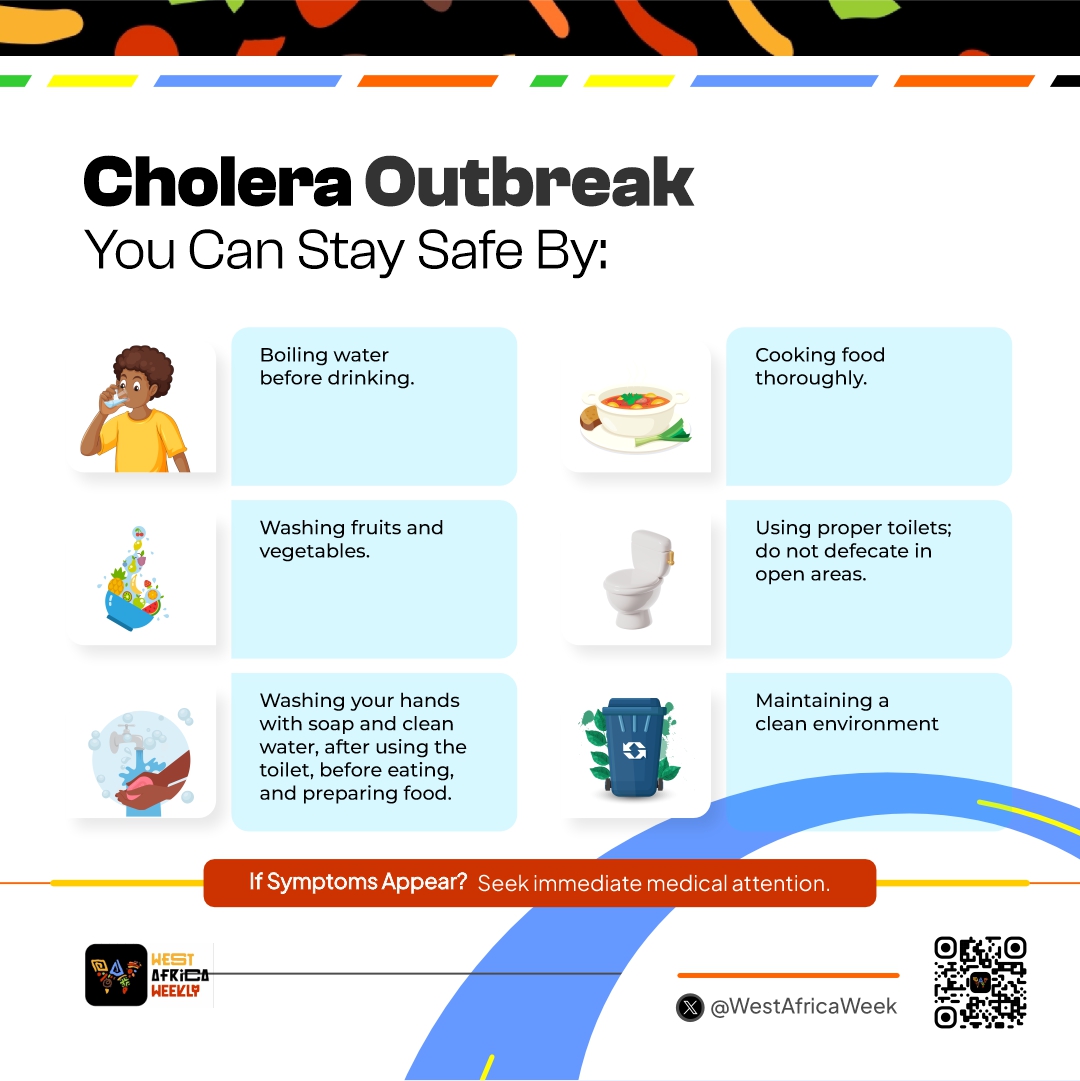
Cholera Outbreak: What You Need To Know To Stay Safe, Prevent Spread

Cholera is rising, with 10 states contributing to 90 per cent of its burden, according to the Nigeria Centre for Disease Control and Prevention (NCDC) on Thursday. These states include Bayelsa, Zamfara, Abia, Cross River, Bauchi, Delta, Katsina, Imo, Nasarawa, and Lagos.
The NCDC warned the public of the increasing cholera cases across the country as the rainy season intensifies, stating that from January 1 to June 11, 2024, a total of 1,141 suspected and 65 confirmed cases of cholera with 30 deaths had been reported from 96 local government areas in 30 states.
Meanwhile, the Lagos Ministry of Health on Saturday reported Cholera has killed 15 persons with 350 suspected cases and 17 confirmed cases in the state.
The current situation has left traces of fear in Nigerians as they question what preventive steps to take.
In an X (formerly Twitter) post, one @bassey_gi expressed fear, saying:
“I’m so scared to eat anything right now… We can’t even understand what’s going on.”
“We just lost a young man, 10 more in critical condition. Be careful what you eat during this period. I’ve never seen anything like this,” he added.
While the NCDC assured that it will continue to work with partners to lead the health-sector response to cholera outbreaks, here is what you need to know about cholera and some preventive measures to stay safe.
About The Disease
Cholera is an infection caused by ingesting food or water contaminated with the bacterium Vibrio cholerae.
It is not airborne. Cholera mainly affects people living in areas without adequate access to safe drinking water.
Water is usually contaminated by faeces of infected individuals, and the contamination of drinking water can occur at the source, during transportation, or storage at home.
Food may be contaminated by soiled hands, either during preparation or while eating.
When a person drinks water or eats food that contains V. cholerae, the bacteria grows inside them.
Most people infected with V. cholerae do not develop any symptoms; however, most people who develop symptoms have mild or moderate symptoms.
According to the WHO, it takes 12 hours and five days for a person to show symptoms.
Symptoms of cholera include acute profuse, painless, watery diarrhoea (rice water stools) of sudden onset, with or without vomiting.
It may also be associated with nausea, profuse vomiting, and fever.
A minority of patients develop acute watery diarrhoea with severe dehydration, which can lead to death if left untreated.
How To Stay Safe And Prevent Cholera Spread
Personal hygiene and sanitation are essential to stay safe and prevent the spread of cholera.
Therefore, wash your hands thoroughly with soap and clean water, especially after using the toilet, before eating, and before preparing food. If soap and water are not available, use an alcohol-based hand sanitiser.
Maintaining good toilet hygiene also helps. Use proper toilets. Do not defecate in open areas. If toilets are not available, defecate at least 30 meters away from any water source and bury faeces.
Also, food and water safety should be practiced by thoroughly cooking and preserving food. Wash fruits and Vegetables. Boil water before drinking to kill bacteria and other pathogens.
Seek immediate medical attention if you or someone else shows symptoms of cholera.
Following these measures can significantly reduce your risk of contracting cholera and help prevent its spread.
Read more: Nigeria’s Inflation Soars to 33.95% in May 2024 – NBS
About The Author
Related Articles
Ghana to Rename Kotoka International Airport
Ghana’s government is preparing to rename the country’s main international gateway, Kotoka...
ByWest Africa WeeklyFebruary 4, 2026Russia Congratulates Ibrahim Traoré on Assuming AES Presidency
Russia has congratulated Burkina Faso’s President, Captain Ibrahim Traoré, on his assumption...
ByWest Africa WeeklyFebruary 4, 2026AES Condemns Niamey Airport Attack, Warns of Coordinated Destabilisation
The Alliance of Sahel States has strongly condemned the armed attack on...
ByWest Africa WeeklyFebruary 2, 2026Mali Cedes Strategic Land to Guinea to Deepen Trade Cooperation
Mali has approved the transfer of a strategic parcel of land to...
ByWest Africa WeeklyFebruary 2, 2026











